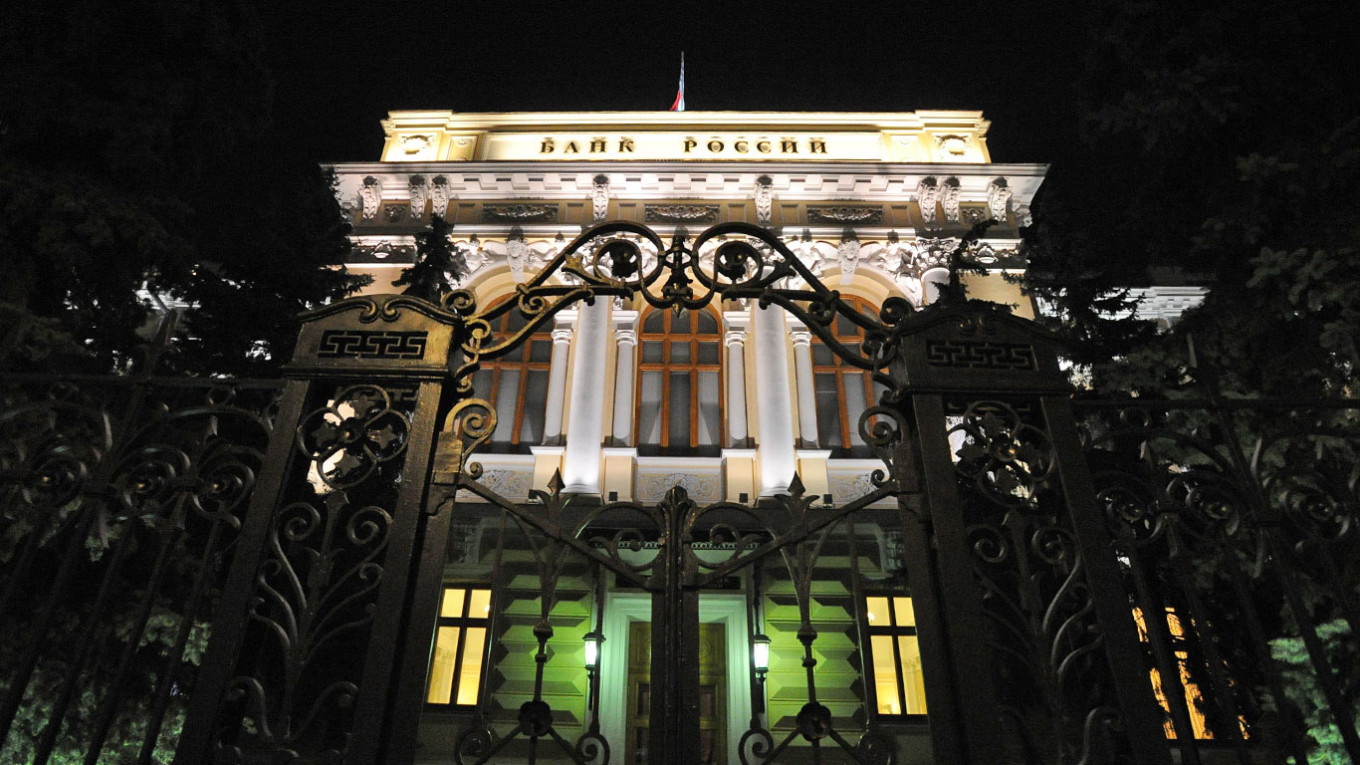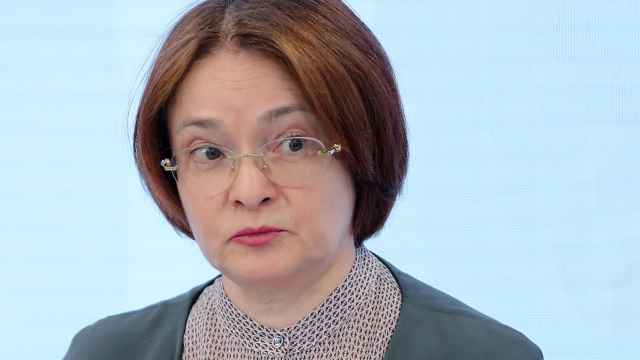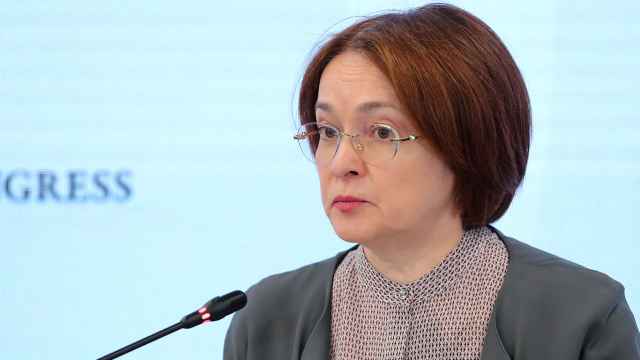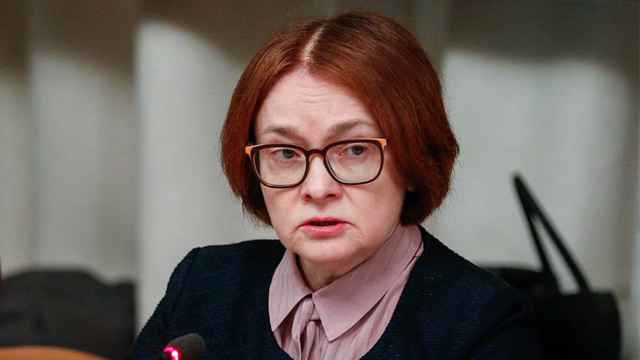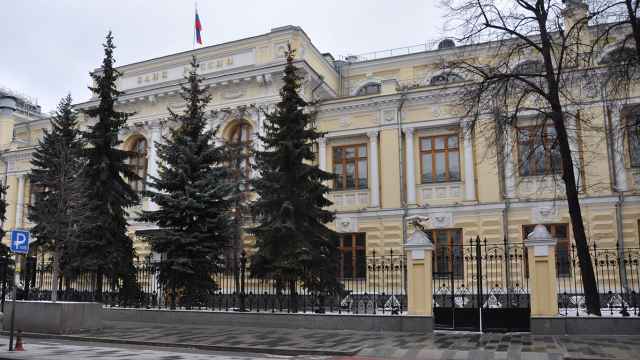The Russian economy faces a new “perestroika” as it is forced to adjust to life under heavy sanctions and international isolation, the country’s Central Bank warned Friday.
The regulator opted to hold interest rates at 20% in a scheduled rate-setting meeting, following an emergency hike late February in the days after Moscow launched its invasion of Ukraine and the West imposed unprecedented financial sanctions in response.
“The Russian economy is entering a phase of large-scale structural readjustment,” the Bank said in a statement.
“This will be accompanied by a temporary, but inevitable period of higher inflation,” it added.
Russia’s inflation rate has been running at its highest level in 24 years in the weeks following the invasion of Ukraine. Officials warned Friday against panic buying as a number of Russian stores reported shortages in staple goods such as sugar and toilet paper due to a surge in consumer demand against the backdrop of fast-rising prices.
In a press conference Friday, Governor Elvira Nabiullina said the hike in rates to 20% would be unwound when the economic situation allowed.
“High interest rates are a temporary anti-crisis measure. When the situation stabilizes, rates will be cut,” she said.
“Since the beginning of March, inflation has significantly accelerated,” the Bank said. “This is reflected by a surge in demand for a number of consumer goods due to increased uncertainty, higher inflation expectations and the weakening of the ruble.”
“Businesses in a number of sectors have reported difficulties with production and logistics against the background of the introduction of trade and financial sanctions on Russia. The sharp increase in uncertainty is negatively affecting the mood and outlook of the population and businesses,” the Bank said.
The regulator is now officially forecasting a decline in Russia’s GDP for the second quarter of the year. Analysts say Russia’s economy is likely to shrink by more than 10% in 2022 and that the economic crisis could be the deepest Russia has faced since the collapse of the Soviet Union.
The term “perestroika” — used by the Central Bank to describe the challenge facing the Russian economy — means “readjustment” or “reconstruction,” and is most closely associated with the economic reforms ushered in at the end of the Soviet Union to open up and introduce market forces to the communist planned economy.
Commentators say Russia’s economy could be heading back to that period, with Western businesses fleeing the country and the government considering options such as nationalization and expropriation in a bid to minimize job losses.
President Vladimir Putin warned earlier this week that Russians should be prepared for an increase in unemployment over the coming weeks, blaming the West as well as Russian “traitors” for attacking Russia and the Russian economy.
Putin on Friday also nominated Nabiullina to serve another five-year term at the helm of the regulator.
Restrictive measures
Western governments have frozen almost half — some $300 billion — of the Central Bank’s international reserves, previously seen as Russia’s insurance policy against tough sanctions. In its statement, the regulator put the onus on the Russian government to save the national economy, saying that budget policies — taxation, spending and investment by the central government — “will significantly affect the dynamics of the economy and inflation.”
Analysts have previously criticized the Russian government for not announcing a significant stimulus package to help support the economy. The latest initiatives outlined by the government focus on tax breaks, credit holidays and cheap loans — similar to the measures adopted during the coronavirus pandemic.
Nabiullina warned the government against the introduction of more restrictive measures, such as price controls.
“There are sufficient amounts of staple foods in reserve, and production is increasing. Once this period of high demand passes, prices for these goods might even start to come down,” she said Friday.
“It’s important not to introduce price controls. They are an artificial measure that won’t address deficits. Administrative measures will slow down the economy’s adaptation to the new conditions.”
A Message from The Moscow Times:
Dear readers,
We are facing unprecedented challenges. Russia's Prosecutor General's Office has designated The Moscow Times as an "undesirable" organization, criminalizing our work and putting our staff at risk of prosecution. This follows our earlier unjust labeling as a "foreign agent."
These actions are direct attempts to silence independent journalism in Russia. The authorities claim our work "discredits the decisions of the Russian leadership." We see things differently: we strive to provide accurate, unbiased reporting on Russia.
We, the journalists of The Moscow Times, refuse to be silenced. But to continue our work, we need your help.
Your support, no matter how small, makes a world of difference. If you can, please support us monthly starting from just $2. It's quick to set up, and every contribution makes a significant impact.
By supporting The Moscow Times, you're defending open, independent journalism in the face of repression. Thank you for standing with us.
Remind me later.


